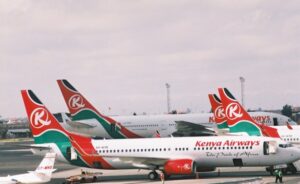
Food inflation in Nigeria increased by 15% during the 11 months from April 2021 to March 2022, adding pressure on the cost of living for salary earners whose incomes have not risen for close to three years.
The alarming situation is that the U.S.$72 minimum wage is insufficient to meet the value of basic foodstuffs for the healthy living of an adult in a month, let alone an entire family, writes Folasade Bosede Adegboye for The Conversation.
After factoring in rent, transportation, medical expenses, and electricity, among others, the average Nigerian worker can’t make ends meet. This has been made worse by the rising cost of living.
The poverty index pegs extreme poverty at those living on less than U.S.$1.90 a day. In Nigeria, the minimum wage currently amounts to about U.S.$1.75 per day, showing how many Nigerian workers are perilously close to extreme poverty.






